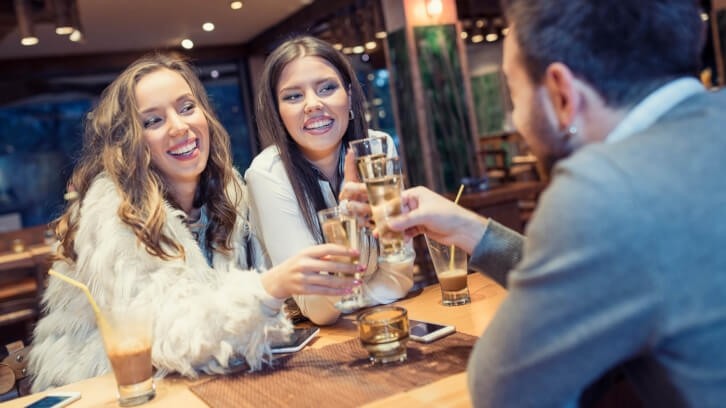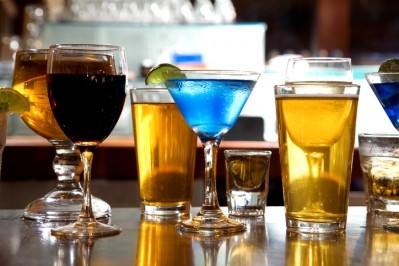Guest article
What spirits brands can learn from coffee

One thing every coffee fanatic appreciates – in fact, the reason there are so many coffee fanatics – is that coffee is inextricably linked to ritual. It’s a drink driven by the perfect serve, the perfectly crafted experience, the spot-on representation of a lifestyle and identity.
It is a great lesson for spirit brands: In a crowded market, incorporating more senses, more specific consumption moments and layering the experience of the brand gives you the best chance to cut through.
Knowing your moment
Coffee brands tend to go one of two ways to achieve memorability. You can be a Starbucks with a shop around every corner and blanket physical availability. Or at the other end of the scale, you carve out your space and differentiation through a curated environment and assets that speak to a specific ritual, conviction or need – which your customers specifically seek out.
From Monmouth Coffee in London deciding to ditch the single-use coffee cup, to ‘the activist’s coffee shop’ Whittier Café in Denver, coffee brands know how to create a sensory experience. They create a space and routine that people can buy into.
What coffee stores manage to exude with their physical presence in this way, spirits brands should look to replicate in the mind. Spirits don’t have the advantage of the same visibility on the street as coffee; but they can look to emulate the way they use associations, multi-sensory experiences and ritual. In fact, as the consumption of spirits are not an everyday event, but rather more naturally associated with special occasions, the opportunities are particularly exciting.
Beyond the beverage
The key with coffee brands is that they look for moments beyond the beverage. Whether it’s the long-anticipated mid-morning break, spending quality time with a friend or the perfect sip that doesn’t ask you to compromise your eco-conscious values, these moments are specific and go beyond just a caffeine fix.
Spirit brands, on the other hand, tend to be less considered about the moment they are looking to capture and evoke. There is always the slightly broader notion of a ‘a good night out’. So, brand owners need to be far more disciplined at defining and owning their moments in people’s minds if they want to resonate before - and after - a customer makes a decision at the bar.
They need to explore how they can build success around offering something distinctive. How they can lean into an ownable state of mind to connect with people – and not dilute their impact by veering too far from it. This may start with those more general moments, but they require much deeper investigation. Don’t just say “good night out”. Rather, ask yourself, are your customers wearing their ‘beater’ shoes because they know the floors are going to be sticky? Are they going out with two friends or 20? Is it 7pm or 11pm? Do they have obligations the next day or are they OK with a hangover?
When your customers ask themselves, “what do I want to drink?”, they are really asking themselves “what kind of night do I want to have?”. Or maybe more importantly, “who do I want to be tonight?”. Be specific, be disciplined. Give your customers a chance to show themselves to the world.
Making the time to shine
Another key trait of coffee brands is that they are really good at elongating the experience. Coffee gives itself a lot of time to be craved. Coffee brands know how to turn a want into a need and a habit, and with it into the memory that will turn a customer into a loyal fan.
It is something spirits brands should explore more. Rather than looking at one-off activations or ad hoc samplings, they should be more creative in making an ownable interaction last. They need to think about where they can show up as a brand and form connections with consumers. Does your drink belong in a certain type of glass? Does it need to be served by a certain type of bartender? Does it go best with a certain type of cuisine? Any association you can create outside the liquid expands the experience with the brand. Once again, specificity is crucial.
Standing for more
But for those distillery brands looking to take on some of what coffee can teach them, the key to finding your moment is to first articulate your core conviction. When Starbucks was founded, its mission was to bring the warmth and artistry of Italy’s coffee culture to Seattle. More recently, Millie Bobbie Brown (actress of Stranger Things fame), launched a coffee brand with a singular focus on the Gen Z mindset – coffee as self-care for those younger coffee drinkers looking for work-life balance.
Knowing what you stand for allows you to break from the mould of traditional audience targeting that center on consumer segments and demographic splits. Such belief gives a clear but interesting angle on what your moments should be – differentiated, ownable, and that feel true to customers as well as your internal team.
The spirits market is expected to continue growing, getting ever more crowded. For brands willing to smell the coffee, there will be huge opportunities to stand out.
About the author: As a strategist, Zander Corbin supports the strategy team in a variety of functions across a number of verticals. Through his international business coursework and extensive travel, Zander has carved out a unique worldview that he takes to brand development, offering an informed lens to support disruptive, belief-led, customer-centric brands. He believes that every brand project represents an opportunity to get more out of businesses and drive meaningful change. Outside of the office, you can find Zander boxing, cooking a new pasta dish, or relaxing at a coffee shop.






